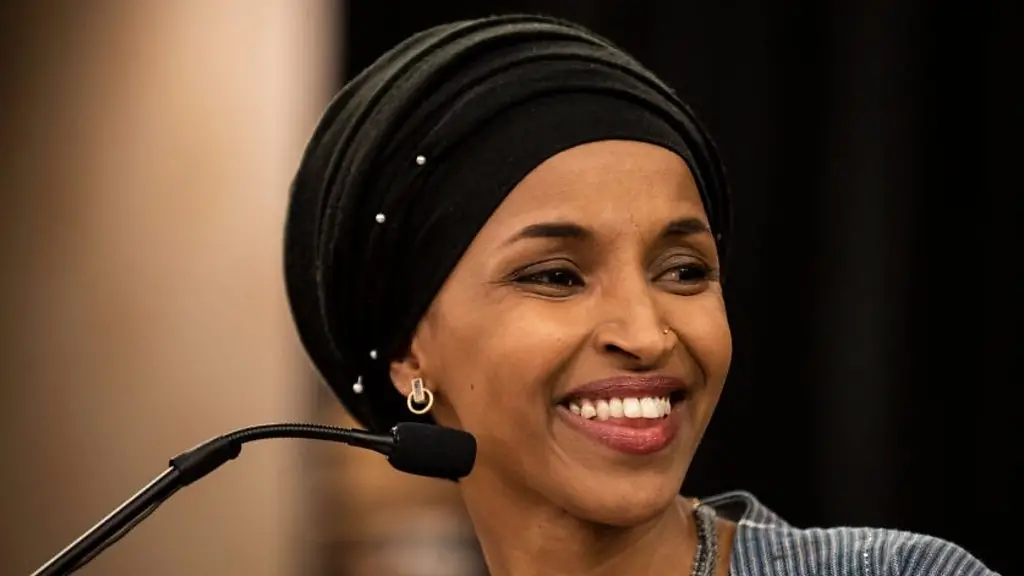In a highly charged interview with former MSNBC host Mehdi Hasan, Representative Ilhan Omar (D-MN) made headlines with remarks that have since sparked intense controversy. During the discussion, Omar suggested that President Donald Trump’s unexpected re-election was due, in part, to the growing “stupidity” among American voters and members of Congress—a statement that has provoked strong responses from both supporters and critics.
The Controversial Remarks
While discussing the aftermath of the 2024 election, Omar remarked, “These people are just idiots,” adding that the level of what she described as “stupidity” observed in Congress and among voters made it nearly impossible to have an intellectual debate. “I’m at the point where it’s become hard to have an intellectual debate with any of these people because the level of stupidity they are displaying every single day is frankly embarrassing, not just in Congress but as Americans,” she said.
Omar’s comments, delivered during a conversation with host Ari Melber, were intended as a critique of what she perceives as a decline in the quality of political discourse—a phenomenon she believes contributed to Trump’s re-election. For her, this trend is not only a political failure but a broader cultural issue.
Political Reactions and Backlash
The fallout was immediate and polarizing. Supporters of Omar’s blunt critique argue that her remarks are a candid reflection of frustrations with a political system that seems to have lost its way. They view her comments as a call to revitalize public debate and hold elected officials accountable.
However, conservative voices quickly condemned the statements. Prominent conservative influencer Matt Walsh, among others on social media, leveled harsh criticism at Omar. Walsh’s tweets, which included personal attacks and disparaging remarks about her background, added fuel to the fire and underscored the deep partisan divisions currently defining American political discourse.
The criticism did not stop there. The debate over the remarks also intertwined with long-standing controversies surrounding Omar, including unfounded allegations about her personal life and immigration practices—claims that she has consistently dismissed as baseless and politically motivated. Many of her detractors argue that her harsh language and disparaging tone not only alienate potential allies but also contribute to an environment of divisiveness.
Broader Implications for American Politics
Omar’s comments have opened up a wider discussion about the state of political discourse in America. Critics from both sides of the aisle are now debating whether such blunt characterizations are helpful or harmful to public debate. While some see her statement as a necessary, if uncomfortable, critique of what they consider a decline in intellectual standards, others believe it undermines the very dialogue needed to address America’s pressing challenges.
The incident also comes at a time when other political issues are under scrutiny. With ongoing debates about immigration practices, congressional accountability, and the influence of partisan politics on public policy, Omar’s remarks have added another layer to an already complex national conversation.
The Role of Media and Public Perception
This controversy is yet another example of how media narratives can amplify political statements and shape public perception. As Omar’s words were dissected across social media and cable news networks, they served both as a rallying cry for some and as a point of personal attack for others. The polarized reactions highlight the challenges of maintaining a unified national dialogue in an era of social media where every word is amplified and often taken out of context.
Conclusion: A Call for Reflection and Constructive Dialogue
In her impassioned remarks, Ilhan Omar sought to highlight what she perceives as a troubling trend—a decline in the intellectual rigor of political debate that she believes has real consequences for American democracy. While her comments have sparked significant backlash, they also invite a broader discussion about the need for thoughtful, respectful discourse in a deeply divided nation.
What do you think about Ilhan Omar’s assessment of American political intelligence? Is her critique a reflection of genuine concerns, or does it oversimplify the challenges facing our democracy? Share your thoughts on Facebook and join the conversation as we reflect on the future of political discourse in America.
In an era where every comment can ignite a national debate, let us strive to elevate our discussions and work together to build a more thoughtful and inclusive political dialogue.

